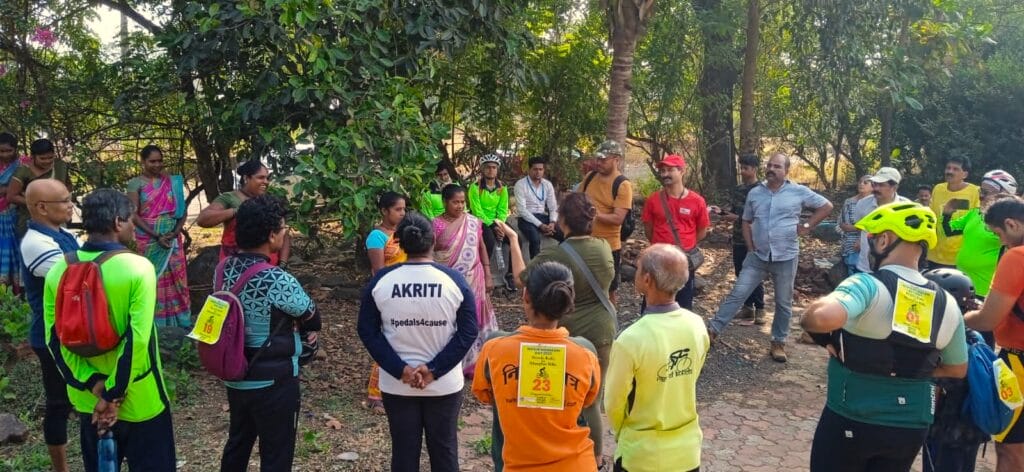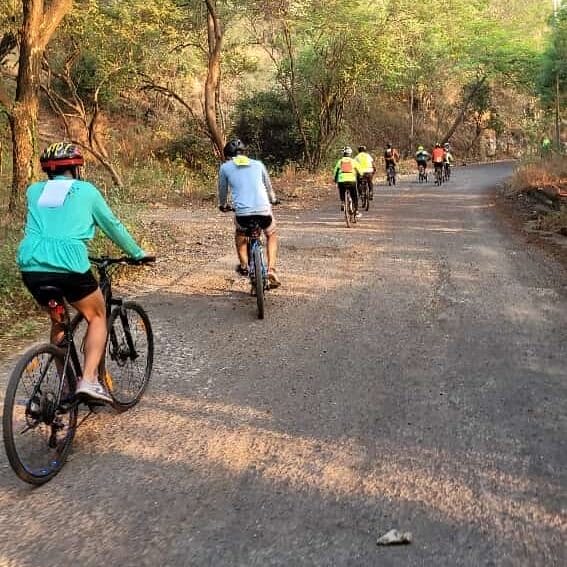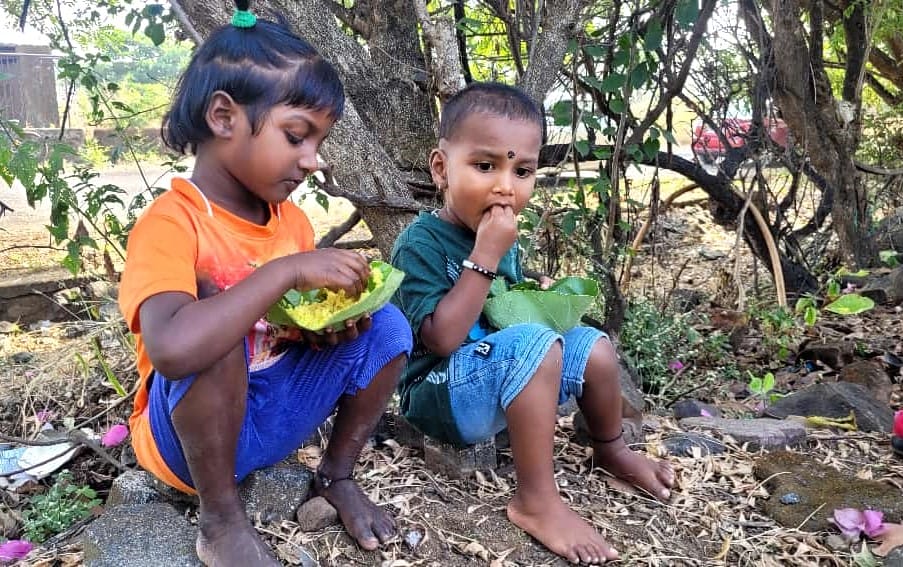International Mountain Day is celebrated on December 11th as a response to call by UNCED (United Nations Conference on Environment and Development). The aim is to raise awareness about the importance of the fragile ecosystems and to come up with different ways to sustain and prevent them from destruction of any kind.
Forest, hills, plants and animals are my life. I was fortunate to grow amidst nature, wild animals and birds. Being a pahadan (the one who lives in the mountains), hills and mountains are in my blood.
When I came to Kharghar in 2016, the hill, simply called the Kharghar Hill, opposite my society kept looking at me with some hope to revive it. That call pushed me to work for its restoration. Since then, I have been trying to create awareness to protect the habitats around us. Especially the hills, as I firmly believe, “No Humans and Technology Can Replicate It”.

I thought of celebrating the mountain festival to create awareness about this precious heritage and to get more like-minded people together to save the hill. People love to celebrate festivals and hills and mountains, that are full of valuable flora and fauna, need to be celebrated.
This is my second year of celebrating the Mountain day. Last year we celebrated the theme, ‘Women Move Mountains’ and this year’s theme was, ‘Restoring mountain ecosystems’.
The cycle rally, to commemorate this day, was organised by Kharghar Wetlands and Hills, Nisarg Mitra, Snake Awareness Association and Anubhuti Endeavours Pvt Ltd in collaboration with the Forest Department, Panvel (Raigad). Our friends including Sudeep Athavale, Dhananjay Madan, Raghunath Jadhav, who are committed to these causes, were instrumental in making initiative a success.

The hour-long cycle rally had 50 participants. We started from Utsav Chowk in Kharghar and cycled to the tribal village of Fanaswadi on the Kharghar Hill. We paused to rest and interact with the villagers. We ate together, talked about various risks to the environment and how to mitigate them. We would like to have every resident on board in this journey to preserve and restore this ecosystem.
Mountain’s fragile ecosystems at risk
Rampant destruction in the name of development is the most important concern for us. Citizens are trying their best to save the the environment. However, the bureaucrats and policy makers need to be honest and wise in their decision making.
People need to understand the importance of the hill, its fragile ecosystem and its connection with us. And also, how they can support the cause to save our environment.
They are still not aware of the treasures Kharghar has in store and what is being planned in the name of development. The systematic destruction of these places, be it mining or real estate, will have long lasting impact on all of us.
City and Industrial Development Corporation (CIDCO), which is the planning agency for Navi Mumbai, is trying to build on every inch of open space, including the hills. It is shocking, because during the rainy season, we are not allowed to trek or cycle through the hills due to risks of landslides. So how can they allow or plan for any construction? Will the people live in those risky conditions? Will it not weaken the hill? It is a Basaltic hill and is already weakened due to mining on one side.
Moreover, the tribal hamlets of Fanaswadi and Chaphewadi, where people have lived for generations in complete harmony with nature, will be impacted severely.
Read more: ‘Mountain man’ Dr Anil Joshi: “There should be no aggressive development projects in the hills”
Other than pollution, the problems of illegal mining and hill burning are a huge risk for the environment. Even at the time of writing this article, I had to leave it midway and rush on the hill at 10.30 pm in the night to put off a fire. Luckily, Nitin Tiwari, one of our society friends, who helps with fire related issues, was also there with me.
Another important factor is the impact of development and construction on pollution and provision of basic requirements such as water. Already Kharghar faces water shortage and several societies survive on water tankers. How will the government manage all this, if more construction is allowed?
Previous plan to preserve the mountains
According to the original plan, CIDCO had planned to preserve this region and its biodiversity and develop a nature’s park. They had recognised its importance given the count of flora and fauna including a few of endemic species. There was also a plan to ensure that the waterfall of Padavkada became perennial with the help of a pond. What happened to that plan?
We need to talk about all this. And involve more people in the strategy to preserve this delicate and crucial biodiversity.

So, an event like this cycle rally helps us to gather like-minded people who may want to contribute with their time and energy to save Mother Nature. Activities are planned in such a way that participants carry a unique memory. It is also a way to meet different people from different fields and a platform to gain and share knowledge.
I have spent my past 30 years working with animals first and then humans and nature. I have had many special experiences while engaging with all of them.
Ultimately, I have learnt that when your intentions are pure, and you are working with dedication and passion, nothing can stop you from achieving your goal. IMPOSSIBLE becomes I AM POSSIBLE.
| If you are interested in reaching out to the group to understand the issues or volunteer, please contact the group Kharghar Wetlands and Hills at Khargharwetlands@gmail.com And if you would like to share your experiences of participating in such initiatives for a cause, you can do so by mailing us at mumbai@citizenmatters.in |